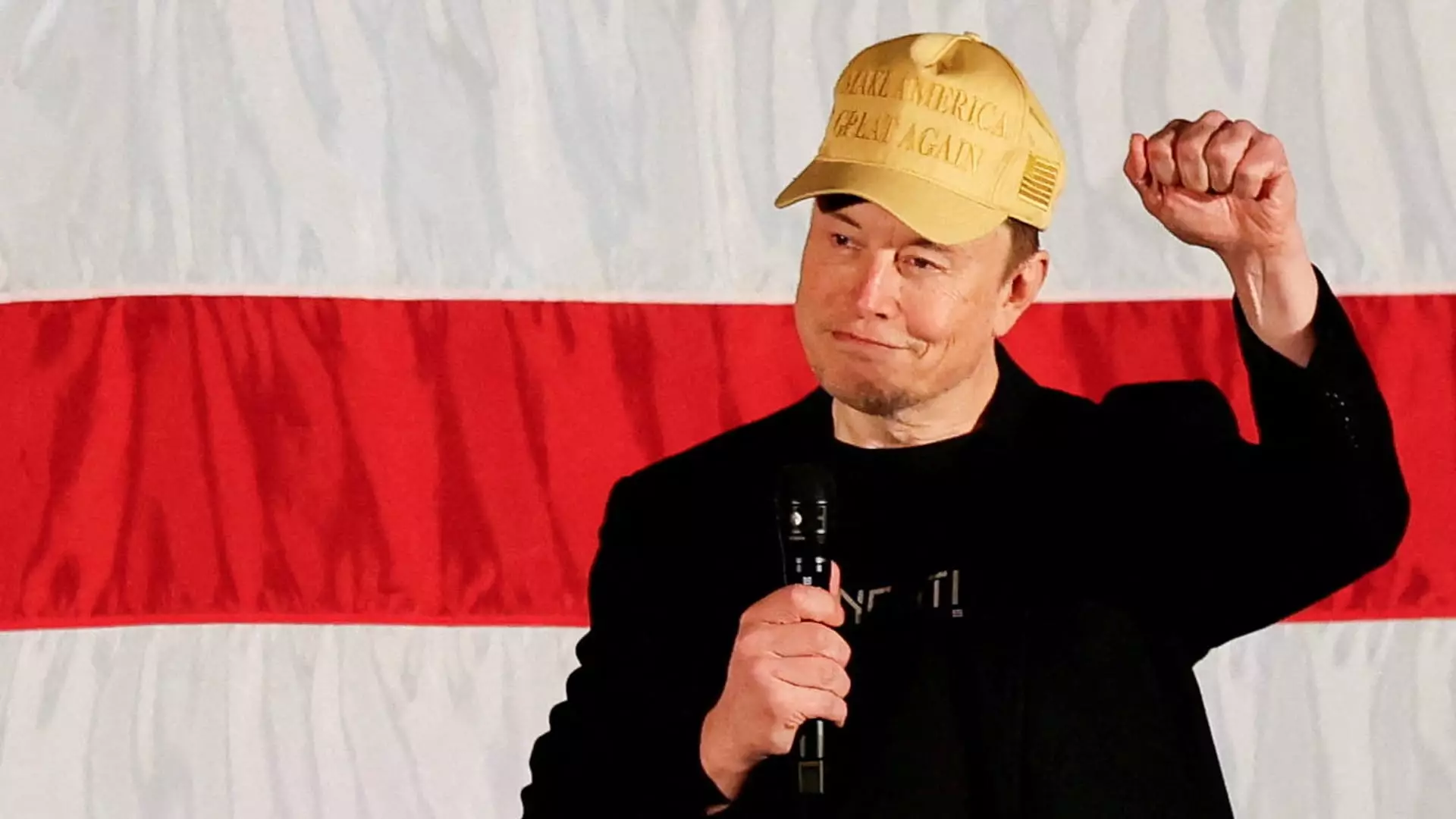Elon Musk’s recent initiative to award $1 million a day to registered voters in key swing states has sparked significant debate and criticism within political and legal circles. By announcing this financial incentive at an America PAC event in Harrisburg, Pennsylvania, Musk ostensibly aims to galvanize potential voters for his pro-Trump political action committee. However, beneath this surface lies a complex interplay of ethical, legal, and political issues that raises essential questions about the implications of such actions on American democracy.
Under the guise of promoting voter registration, Musk’s announcement to randomly reward individuals for signing a petition could be interpreted as an innovative means of encouraging participation in the electoral process. In a politically charged atmosphere, his offer has the potential to significantly enhance turnout among voters who may otherwise abstain from casting their ballots. However, the ethical considerations surrounding such incentives are troubling. Can we genuinely claim that voters are making autonomous decisions if financial gain influences their willingness to participate? The implications of financial coercion in voting behavior rest uneasily on the foundation of a democratic society built on the premise of free will.
During the event, Musk stated, “This seems like a good use of money,” yet many observers would argue that pouring cash into the political arena—especially from someone as affluent as Musk—essentially commodifies the democratic process. By linking financial rewards to political action, Musk’s initiative raises profound concerns about equity, privilege, and the distortion of the electoral landscape.
The initiative does not only tread on ethical ground, but it also risks violating federal election laws. Experts, like Rick Hasen, a professor of law at UCLA, have pointed out that this kind of financial incentive could contravene the law prohibiting payments for voter registration or voting itself. Hasen’s assertion that “Congress has determined you should not be able to sell your vote to the highest bidder” emphasizes the critical need to uphold the integrity of the ballot box. Such coast-to-coast criticism of Musk’s actions suggests a notable apprehension surrounding the potential repercussions for both voters and the broader electoral landscape.
The legal ramifications of Musk’s initiative have not gone unnoticed, with Pennsylvania’s Democratic Governor, Josh Shapiro, labeling Musk’s plan as “deeply concerning.” The potential for legal scrutiny reinforces a fundamental principle of democracy: the need for structures that prevent the rich from wielding disproportionate influence over the electoral process. Even if Musk himself does not intend to undermine democracy, the act of offering incentives for voter participation fundamentally alters the character of political engagement and raises alarms about possible exploitation.
Musk’s outreach reflects a larger trend that has become increasingly prevalent in American politics: the propensity of wealthy individuals to directly influence electoral dynamics. As the founder of companies that rely heavily on government contracts and funding, Musk’s status and wealth afford him a platform that disproportionately amplifies his voice in the political arena. His criticism of government institutions, even while benefiting from them, exposes the paradox of utilizing governmental resources while attempting to dismantle them vocally.
Musk’s statements during the event, wherein he disparaged various government entities, highlight a clear dichotomy present in elite political discourse: individuals benefiting from government projects simultaneously declaring distrust in government efficiency. If those at the pinnacle of wealth take to the stage to criticize the very systems that contribute to their success, what message are they sending about the value placed on civic duty and responsibility? This erosion of trust in government perpetuates cynicism among the electorate and fosters a culture in which political engagement becomes transactional rather than principled.
Elon Musk’s billion-dollar voter initiative may have roused interest and excitement, yet it also prompts an urgent conversation about the intersection of wealth, politics, and the intrinsic values of democracy. Encouraging eye-catching participation mechanisms must be weighed against the moral and legal structures that protect the integrity of the electoral process. As Americans navigate this increasingly complex political terrain, it is imperative to reflect on the implications of allowing financial incentives to permeate the democratic process. Instead of celebrating ostentatious displays of wealth as vehicles for political change, society must reaffirm its commitment to an electoral system founded on equitable participation, informed choice, and above all, unwavering respect for the democratic ethos.

